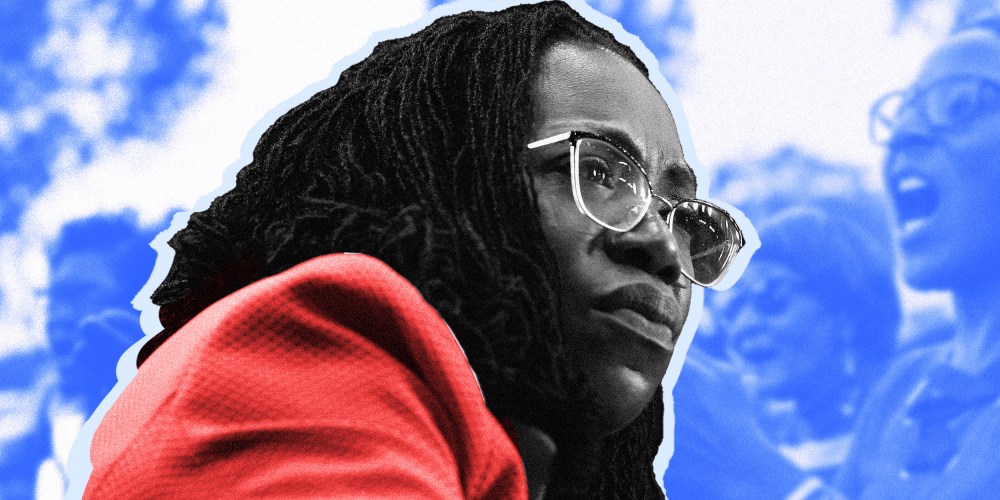Judge Ketanji Brown Jackson’s Supreme Court confirmation hearings this week should have been a moment of pride for our nation, but instead of being a high point, the nomination of the first African American woman to the Supreme Court became a painful reminder of the racism, sexism and downright evil that men and women can do in service to white supremacy. It may also be a defining moment for the Democratic Party’s most loyal base: Black women.
Judge Ketanji Brown Jackson’s Supreme Court confirmation hearings this week should have been a moment of pride.
The failure of Democrats on the Senate Judiciary Committee to forcefully defend Jackson may be a moment the party comes to regret.
Black women painfully watched the spectacle of an overly qualified Black woman getting vilified by people who are neither her intellectual nor moral peers. And during that bacchanalia of thinly disguised racial hatred and animus aimed at Jackson, Black women watched the members of the party that nominated her barely defend her. What was always going to be a difficult hearing turned into a brutal show of hatred by Republicans. And Democrats let it happen.
During the Republican histrionics, Jackson was subjected to countless asinine questions about the sentences she imposed in child pornography cases and about whether she uses critical race theory to decide cases. To top it off, Sen. Ted Cruz, R-Texas, asked her about racist babies. If that wasn’t enough, she was also asked about her religion by Sen. Lindsey Graham, R-S.C., ostensibly to relitigate 2020’s confirmation hearings of Justice Amy Coney Barrett, a Catholic.

But this piece isn’t about Republicans’ disingenuous, disturbing and sometimes vile attacks on Jackson, but about the Democratic Party, the politics of representation and the shaky ground the party occupies in 2022.
With the exception of Sen. Mazie Hirono, D-Hawaii; Sen. Jon Ossoff, D-Ga.; and, to some extent, Sen. Cory Booker, D-N.J., (more on him in a moment) Democrats did not defend Jackson as carefully or thoroughly as they should have. Slate’s Dahlia Lithwick stated the case forcefully, saying the Democrats “stranded” Jackson, leaving America with the optics of Sen. Dick Durbin, D-Ill., controlling the gavel but leaving her alone to fend off QAnon smears and relentless attacks. Lithwick counted Booker’s defense of Jackson as Wednesday’s only highlight.
However, as impassioned and full of hope as Booker’s defense was, and as important as it was for Black women to see and hear a Black man defend Jackson, Booker weaving his own biography into hers smacked of condescension. His telling Jackson, “You have earned this spot. You are worthy. You are a great American,” goes without saying. But it is typical of the kind of appeal that Black people must so often make to justify their presence in a white male-dominated society. Booker’s attempt to support her by telling her she belongs didn’t confront the evil fact that the Republicans who were in the room know Jackson belongs; they simply don’t want her on the court. Period.













